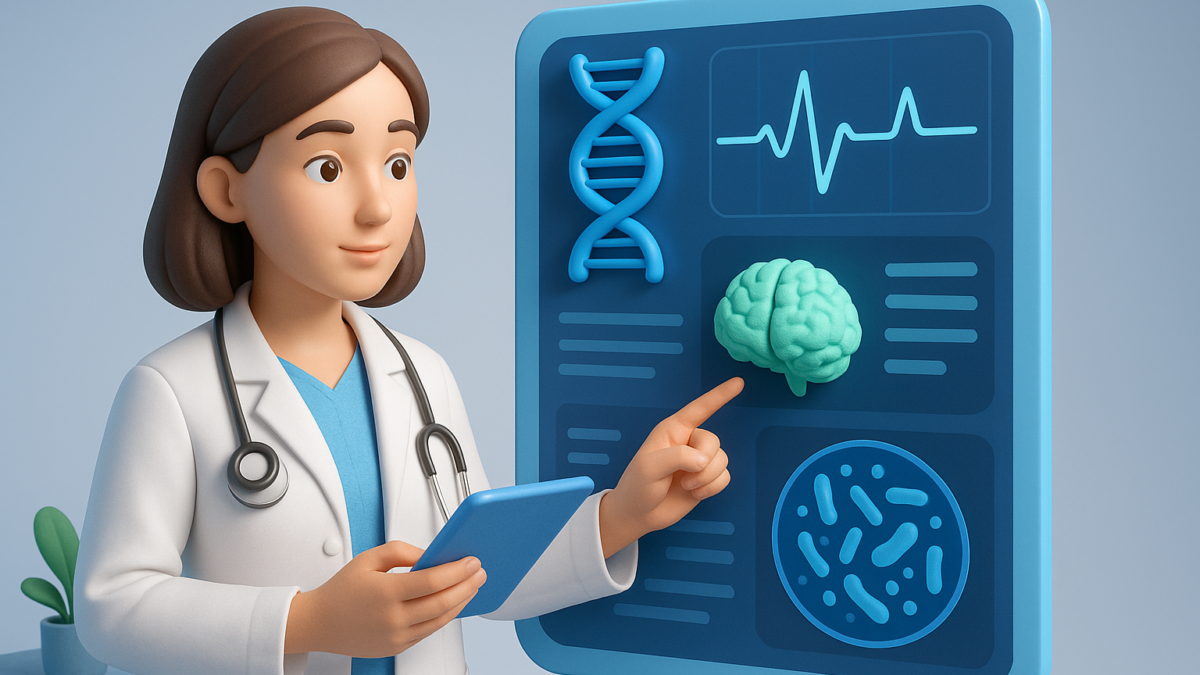AI-Driven Diagnostics: Revolutionizing Early Disease Detection in 2025
How AI-Driven Diagnostics Are Redefining Early Disease Detection
In 2025, artificial intelligence (AI) has become a cornerstone of medical diagnostics, enabling earlier, more accurate detection of diseases across various specialties. From imaging and pathology to genomics and predictive analytics, AI is transforming healthcare delivery, improving patient outcomes, and reducing costs.
The Rise of AI in Medical Diagnostics
AI technologies, including machine learning and deep learning algorithms, are capable of analyzing vast amounts of medical data swiftly and accurately. These capabilities allow healthcare providers to identify patterns and anomalies that might be difficult for even experienced clinicians to detect. As a result, AI is increasingly integrated into diagnostic tools, enhancing the precision and efficiency of medical assessments.
Key Applications of AI in Early Disease Detection
1. Cardiovascular Health
AI-powered stethoscopes, such as those developed by Eko Health, can diagnose heart failure, valve diseases, and arrhythmias within seconds. These devices record heart sounds and ECG data, analyze them using AI algorithms, and provide instant feedback to clinicians, facilitating prompt and accurate diagnoses.
2. Neurological Disorders
Roche Diagnostics and Eli Lilly’s Elecsys blood test, approved by the FDA, measures pTau181 levels to assist in the early detection of Alzheimer’s disease. This non-invasive test offers a less costly and more accessible alternative to traditional diagnostic methods, such as spinal taps and PET scans.
3. Cancer Screening
AI is being utilized to enhance cancer screening processes. For instance, Telangana’s health department has integrated AI into cancer screening for oral, breast, and cervical cancers, aiming for early detection with improved accuracy.
4. Ophthalmology
PerceptronCARE, an AI-based teleophthalmology application, employs deep learning to detect diabetic retinopathy from retinal images with 85.4% accuracy. This tool enables real-time screening in clinical and telemedicine settings, expanding access to eye care services.
5. Gastroenterology
An integrated AI-enabled system using the One Class Twin Cross Learning (OCT-X) algorithm has achieved a diagnostic accuracy of 99.7% in early gastric cancer detection. This system combines advanced imaging sensors and real-time data processing to identify lesions efficiently.
Benefits of AI in Early Disease Detection
- Enhanced Accuracy: AI algorithms can analyze complex datasets to identify subtle patterns, leading to more accurate diagnoses.
- Increased Accessibility: AI-powered tools can be deployed in various settings, including remote areas, improving access to healthcare services.
- Cost Efficiency: By automating diagnostic processes, AI can reduce the need for expensive tests and procedures.
- Personalized Medicine: AI facilitates the development of tailored treatment plans based on individual patient data.
Challenges and Considerations
Despite the promising advancements, the integration of AI into medical diagnostics faces several challenges:
- Data Privacy and Security: Ensuring the protection of patient data is paramount as AI systems handle sensitive information.
- Regulatory Approval: Obtaining approval from regulatory bodies for AI-based diagnostic tools can be a lengthy process.
- Clinical Validation: AI models require extensive validation in diverse clinical settings to confirm their efficacy and reliability.
- Ethical Concerns: The use of AI in healthcare raises ethical questions regarding decision-making and accountability.
The Future of AI in Diagnostics
Looking ahead, AI is expected to play an even more significant role in medical diagnostics:
- Integration with Wearables: AI can analyze data from wearable devices to monitor health conditions in real-time.
- Advancements in Imaging: AI will continue to enhance the resolution and interpretation of medical images, aiding in earlier detection of diseases.
- Predictive Analytics: AI can forecast potential health issues before they manifest, allowing for preventive measures.
- Global Health Initiatives: AI can assist in addressing healthcare disparities by providing diagnostic support in underserved regions.
Conclusion
AI-driven diagnostics are revolutionizing early disease detection in 2025, offering more accurate, accessible, and cost-effective solutions across various medical specialties. As technology continues to evolve, the integration of AI into healthcare promises to enhance patient outcomes and transform the landscape of medical diagnostics.
Distribute your whitepapers, blogs, and resources to the right audience—boost engagement and capture qualified leads with B2B Content Syndication.
You May Also Like: Data-Driven Storytelling: Crafting Whitepapers That Educate and Convert in 2025





